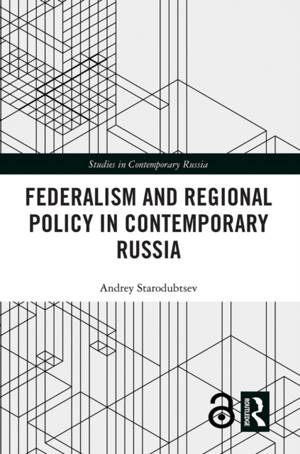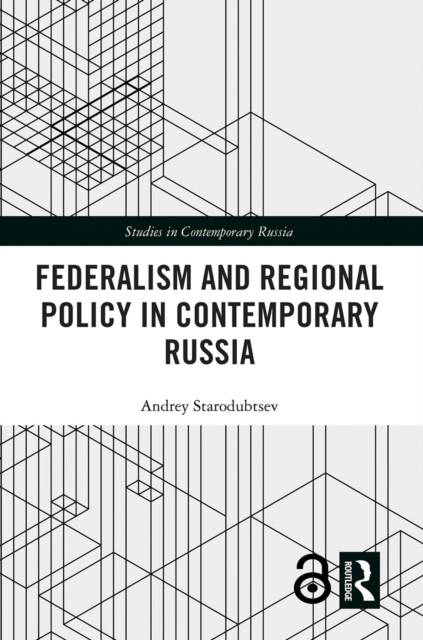
- Afhalen na 1 uur in een winkel met voorraad
- Gratis thuislevering in België vanaf € 30
- Ruim aanbod met 7 miljoen producten
- Afhalen na 1 uur in een winkel met voorraad
- Gratis thuislevering in België vanaf € 30
- Ruim aanbod met 7 miljoen producten
Federalism and Regional Policy in Contemporary Russia
Andrey StarodubtsevOmschrijving
How do Russian leaders balance the need to decentralize governance in a socially and politically complex country with the need to guarantee political control of the state?
Since the early 2000s Russian federal authorities have arranged a system of political control on regional elites and their leaders, providing a "police control" of special bodies subordinated by the federal center on policy implementation in the regions. Different mechanisms of fiscal federalism and investment policy have been used to ensure regional elites' loyalty and a politically centralized but administratively decentralized system has been created.
Asking clear, direct, and theoretically informed questions about the relationship between federalism, decentralization and authoritarianism, this book explores the political survival of authoritarian leaders, the determinants of policy formulation, and theories of federalism and decentralization, to reach a new understanding of territorial governance in contemporary Russia. As such, it is an important work for students and researchers in Russian studies and regional and federal studies.
Specificaties
Betrokkenen
- Auteur(s):
- Uitgeverij:
Inhoud
- Aantal bladzijden:
- 188
- Taal:
- Engels
- Reeks:
Eigenschappen
- Productcode (EAN):
- 9781032095950
- Verschijningsdatum:
- 30/06/2021
- Uitvoering:
- Paperback
- Formaat:
- Trade paperback (VS)
- Afmetingen:
- 156 mm x 234 mm
- Gewicht:
- 272 g

Alleen bij Standaard Boekhandel
Beoordelingen
We publiceren alleen reviews die voldoen aan de voorwaarden voor reviews. Bekijk onze voorwaarden voor reviews.











